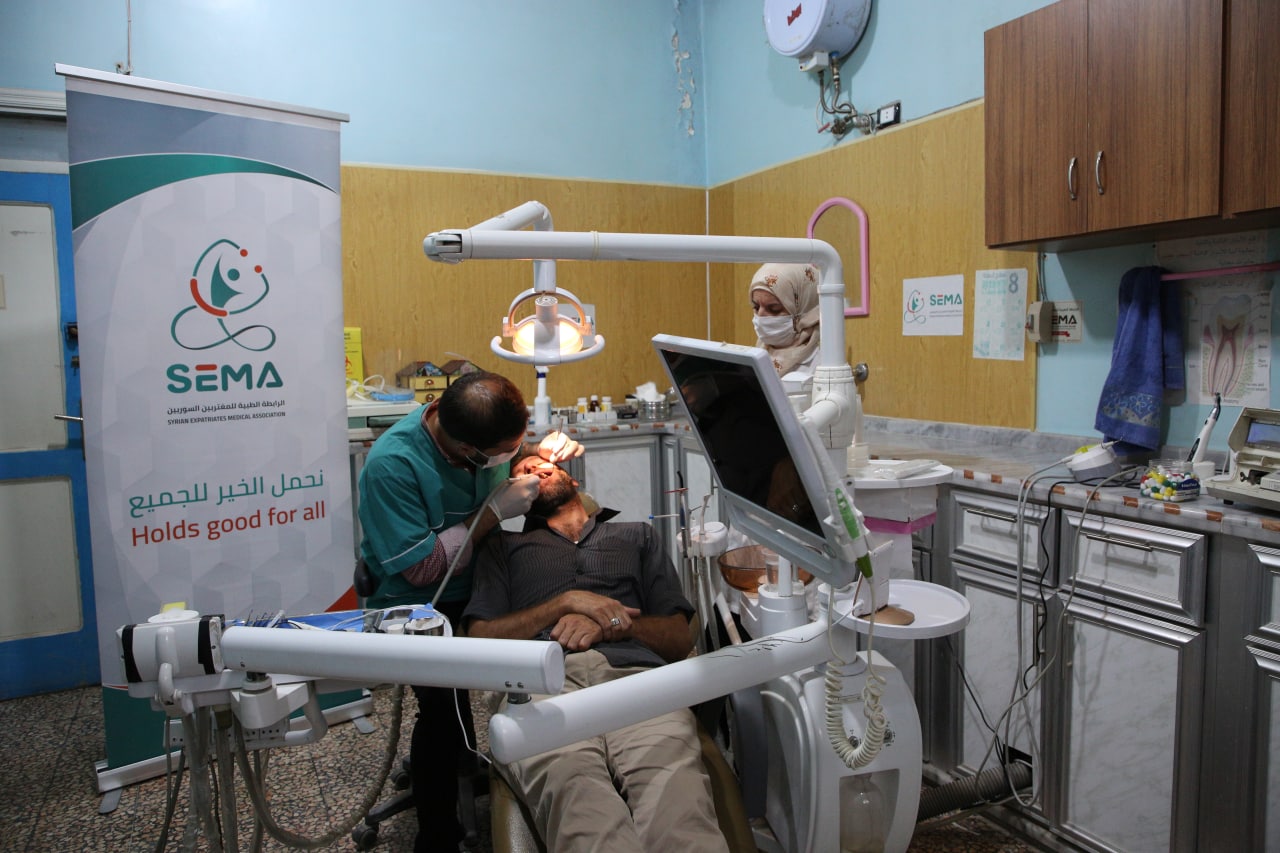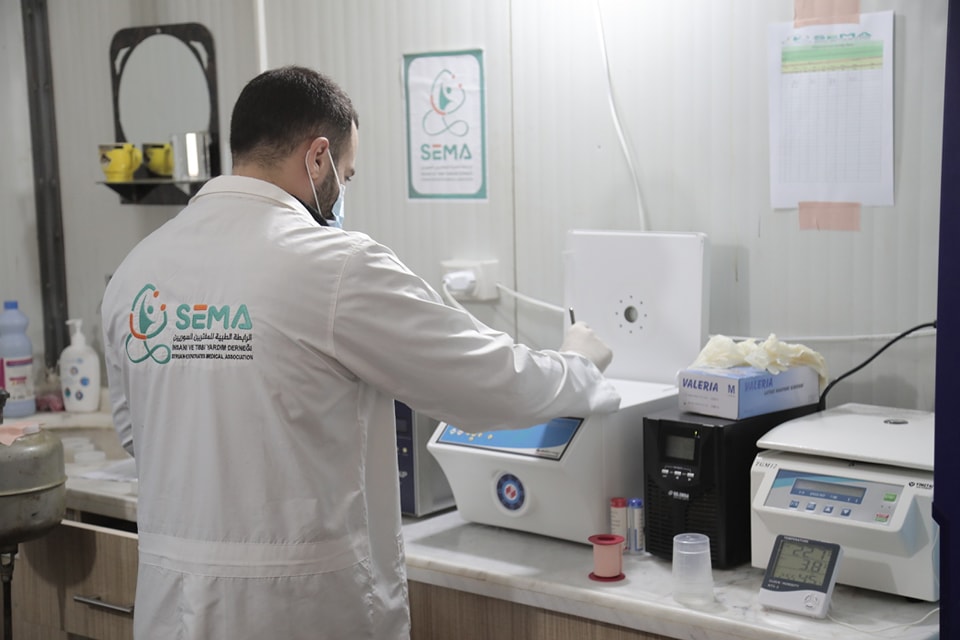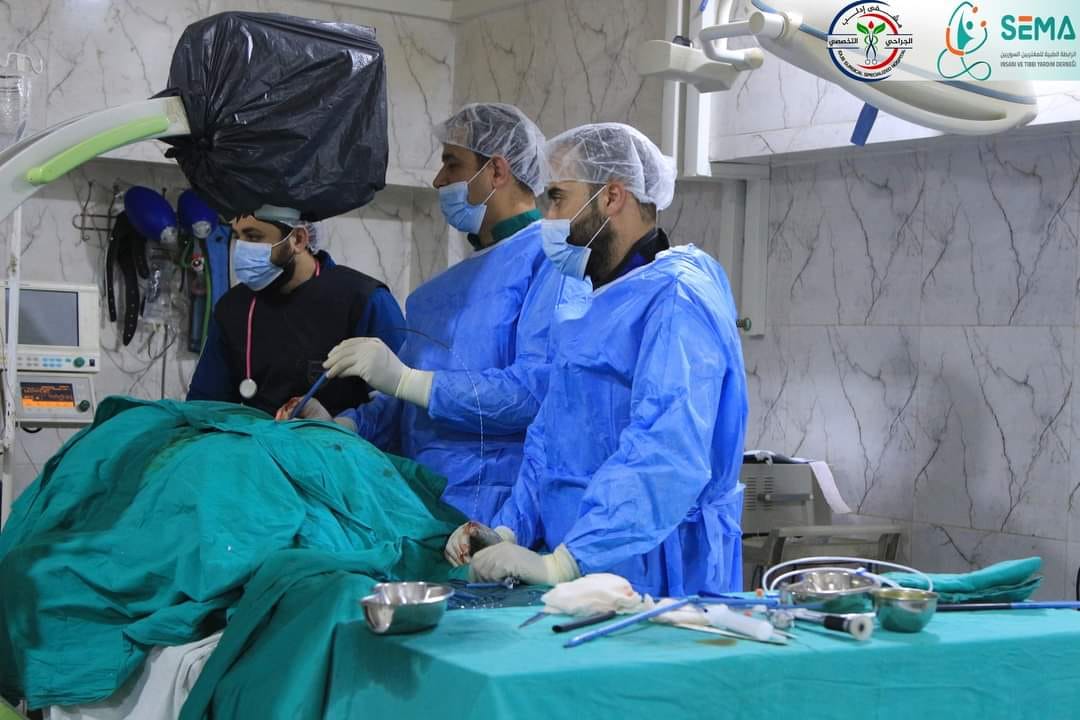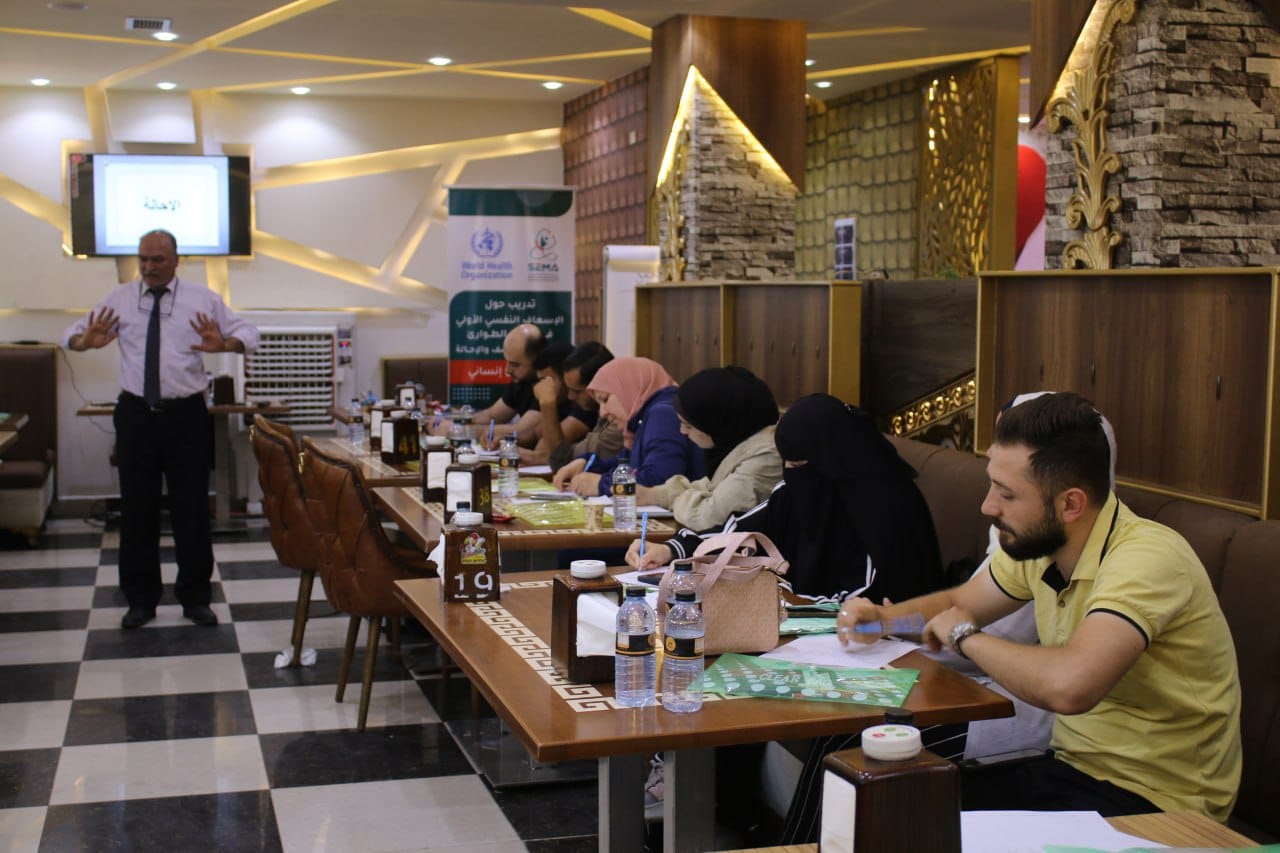Accessing proper healthcare services is a basic human right for all refugees. Nevertheless, many refugee communities are falling short of many medical services and facilities, putting them at risk of losing their lives.
Therefore, there should be effective measures put in place to tackle different issues that hinder refugees from accessing appropriate healthcare services and treatments.
The obstacles to healthcare for refugee
Refugees face plenty of issues that deny them access to medical services.
These problems could be financial or structural which contribute to deteriorating the health conditions of many refugees, especially the vulnerable groups of women and children.
Financial obstacles
A lot of refugees face financial hindrances that prevent them from accessing proper healthcare services.
Many of the refugees fall short of the necessary financial resources to access medications.
Moreover, with the prevalence of poverty in refugee communities, there are acute shortages in healthcare facilities, low levels of health literacy, and experienced medical staff.
Moreover, due to the financial obstacles, many refugees are excluded from national health promotion campaigns, treatment and care, and disease prevention.
Structural obstacles
Structural practices in healthcare might include policies and other norms that impede refugees from accessing suitable healthcare facilities.
Such structural barriers expose many refugees to multiple disadvantages in terms of healthcare and treatment. These include:
- Documentation obstacles include literacy and language problems that hinder many refugees from accessing healthcare services requiring documentation.
- Different entitlements that are associated with different refugee statuses for health seekers and health professionals.
- Unemployed refugees may lack the necessary documents and resources that cover healthcare costs.
- Geographical issues might also be an obstacle since health services might be located in the capital cities far away from refugees. There might also be no transportation infrastructure available for refugees to deliver them to healthcare facilities.
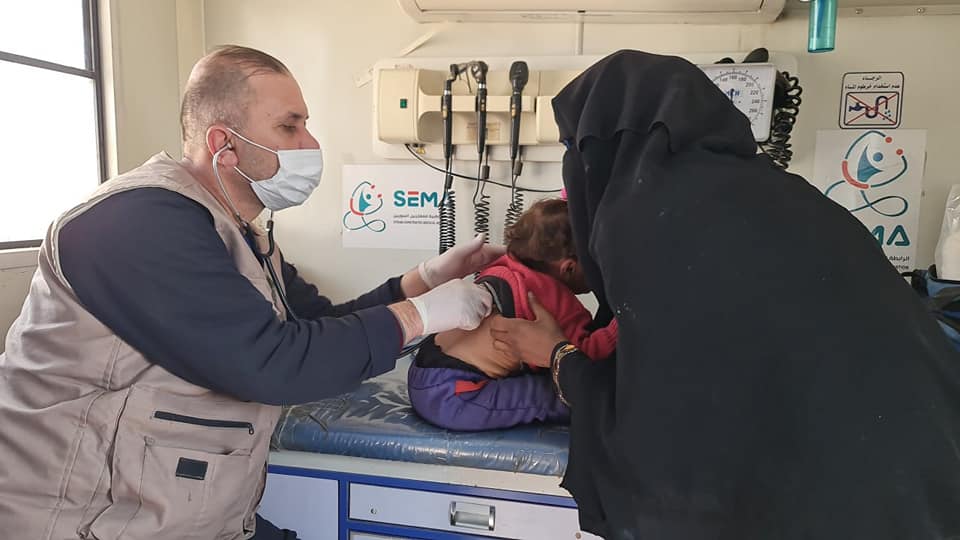
Medical services for refugees
Healthcare services in refugee communities include the below services:
Refugee camp clinics
Health services in refugee camps aim to cover their basic needs for healthcare services. Healthcare services mostly have to do with disease prevention, spreading hygienic practices, and reducing public health risks prevalent in refugee camps.
Healthcare services provided in refugee camps are also concerned with setting up a favorable environment to spread food security and safe nutritional practices.
Emergency cases in refugee camps
Refugee camps provide refugees with the basic medical services and treatment needed during emergencies.
In addition, the focus in refugee camps is on health programs which are mostly related to disease prevention, health promotion, preparation for epidemics, and nutritional rehabilitation.
Field workers in refugee camps are usually volunteers trained to deal with emergency situations and work for different governmental and international organizations.
Refugee vaccinations
Some Syrian refugees received vaccinations before they were displaced. These vaccinations were delivered to them via the Syrian national immunization program.
Furthermore, other refugees have received vaccinations through NGOs that operate in camps and refugee settlements.
Also, Syrian refugees receive vaccinations depending on the country they will be moving to.
Non-infectious chronic illnesses common among refugees
Most non-infectious diseases which are common between Syrian refugees living in host countries include:
- Chronic respiratory disease (CRD).
- Cardiovascular disease (CVD).
- Diabetes mellitus type II (DM II).
Infectious diseases
Common infectious diseases widespread among Syrian refugees are tuberculosis, leishmaniasis, and brucellosis.
Also, gastrointestinal infections and bacterial meningitis are also epidemics that were found to be prevalent among Syrian refugees and other populations are at risk of contracting.
Health sector situation northwest Syria
Medical personnel working for different NGOs are at constant risk of lethal violence against them.
In northwest Syria, there are shortages of trained medical staff and services to meet the healthcare needs of patients. Some threats and dangers that medical staff are at risk of include the following:
- Medical staff are living in constant danger getting to and from health facilities.
Also, patients might be at risk of being attacked while en route to the medical facility.
- Healthcare facilities are in acute shortage of fundamental medical supplies and equipment to deal with various medical cases.
Such medical supplies are also exposed to damage and destruction in potential attacks.
- In case medical facilities get attacked, closures and shortages of medical facilities strain the healthcare sector in northwest Syrian lands.
Healthcare for children
Thousands of children in the northwest Syrian lands do not have access to proper healthcare services.
Their situation is even deteriorating by bad economic conditions. In the past year, health conditions in war-stricken Syrian areas have worsened especially for children who have been hit by an outbreak of cholera.
Additionally, shelling, bombardment, and funding shortages are straining the healthcare system and putting many children in danger of not receiving the appropriate healthcare they need.
Moreover, the Covid pandemic and lack of sanitation infrastructure have made the situation even more catastrophic for children in northwest Syria.
Healthcare for women
Women in northwest Syria are living in poor health conditions. Women are specially suffering from reproductive health issues that are relevant to menstruation, pregnancy, or breastfeeding.
Being located in the capital cities, the long distances of healthcare facilities and costly transportation or lack of transportation means, have made it difficult for women to access the proper healthcare.
For such reasons, pregnant women and their newborns are exposed to many health complications due to late arrival for delivery. Moreover, many women in northwestern Syria are suffering from many psychological problems, such as anxiety, depression, and post-traumatic stress disorder.
Donate now to provide refugees with healthcare services
Your financial donation will save the lives of many Syrian refugees who are struggling to access proper healthcare.
Thousands of refugees are denied access to healthcare facilities, exposing them to the risk of losing their lives.
Furthermore, your financial contributions will support many medical projects and healthcare infrastructure that will help thousands of vulnerable refugees who are suffering from infectious and non-infectious diseases.
Such financial contributions will also help develop disease prevention programs and spread awareness of healthy practices in refugee communities.
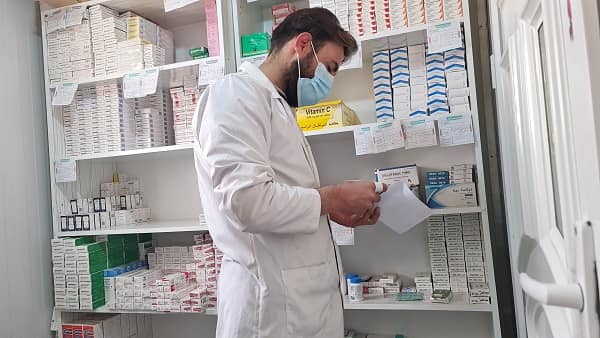
SEMA’S efforts to improve healthcare facilities for refugees
When it comes to healthcare for refugees, SEMA has many contributions toward improving the healthcare system in refugee camps.
SEMA’s contributions include the following actions:
- Providing healthcare facilities with trained medical staff.
- Providing refugees with the necessary medications and treatment.
- Launching awareness campaigns for early diagnosis of infectious and non-infectious diseases.
- Preventing the common factors that spread diseases in refugee communities.
- Setting up awareness campaigns to educate refugees about harmful practices that lead to the spreading of diseases.
- Building mobile clinics to reach out to refugees living in isolated places.
- Equipping refugee camps with the necessary medical services they need.
FAQ
What are common health problems among refugees?
Common health issues among refugees include infectious diseases such as tuberculosis or intestinal parasites, chronic illnesses including diabetes or hypertension, and mental health issues such as post-traumatic stress disorder or depression.
What health issues might arise from being a refugee?
Many refugees are at risk of mental health conditions that arise from the stressful experiences they went through during war.
Such mental illnesses include anxiety and sadness, hopelessness, difficulty sleeping, fatigue, irritability, anger or aches and pains, and post-traumatic disorders.
Why is refugee health an issue?
Refugee health is an issue because refugees are more likely to face a wide range of acute and chronic health issues.
What are the 3 major factors that contribute to the refugee crisis?
The 3 major factors that contribute to the refugee crisis are:
– War and civil war.
– Human rights violations.
– Economic hardships.
Resources
- https://www.who.int
- act.hhs.gov
- https://reliefweb.int
- reliefweb.int
- sema-usa.net
- ncbi.nlm.nih.gov
- cdc.gov
- emergency.unhcr.org
- euro.who.int

